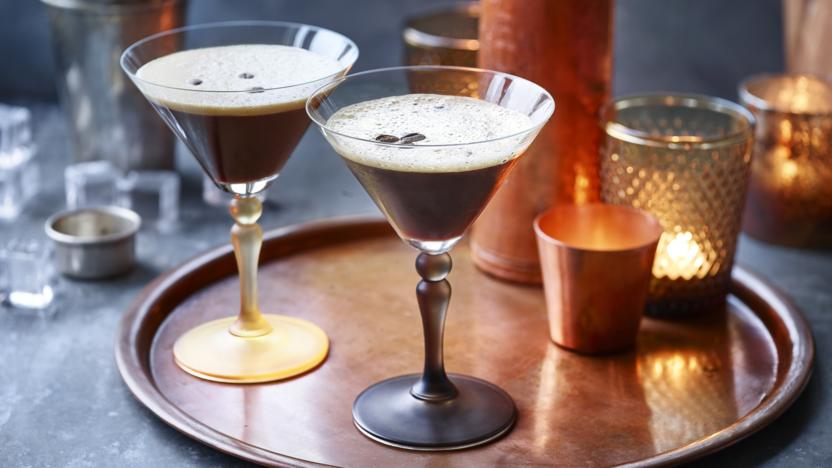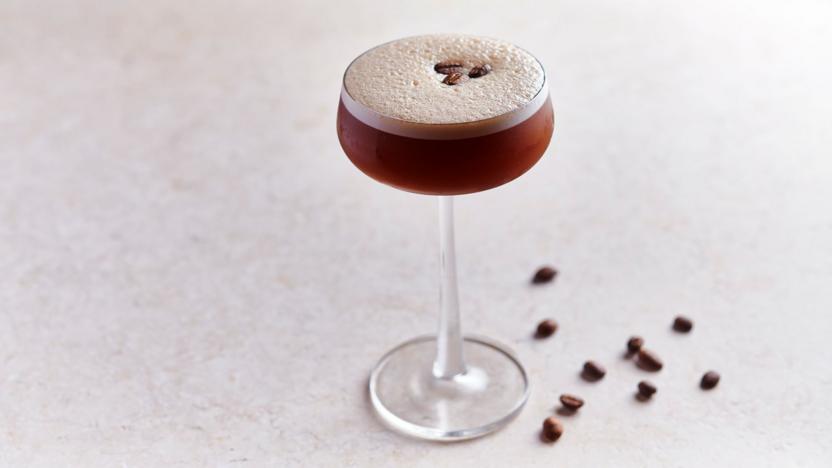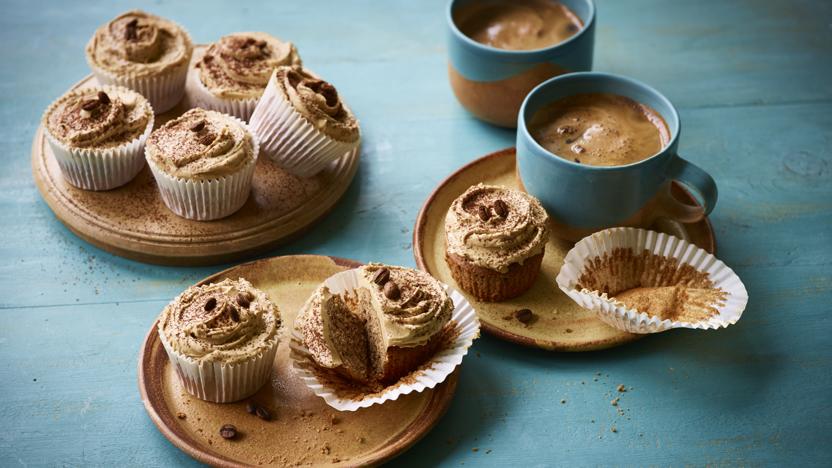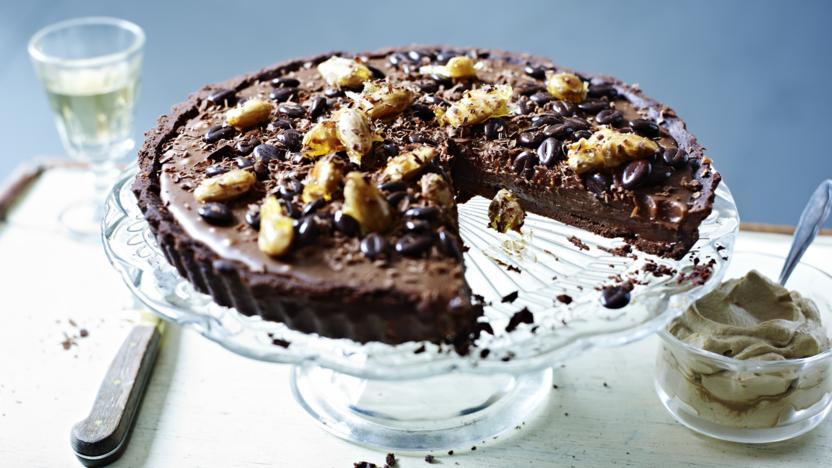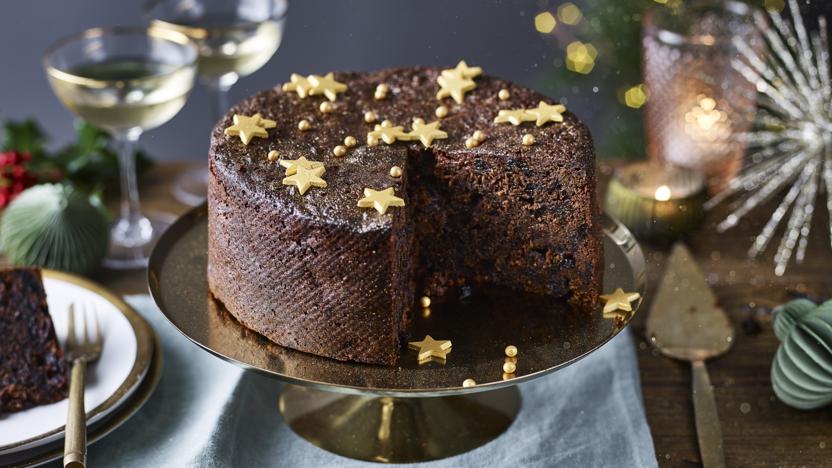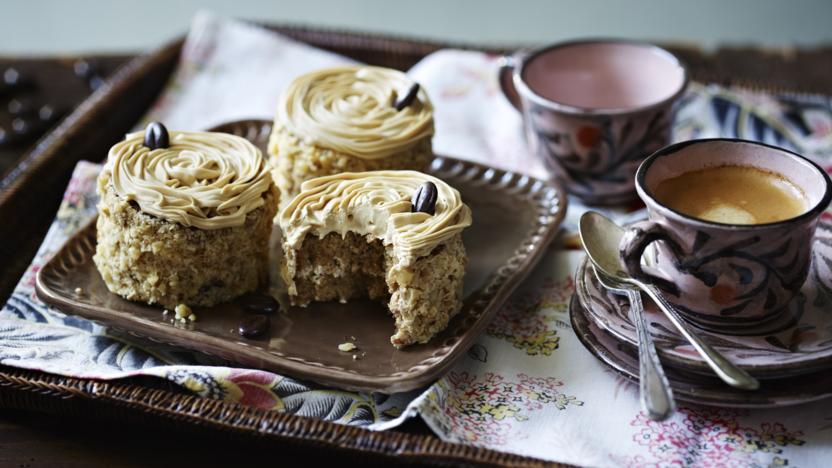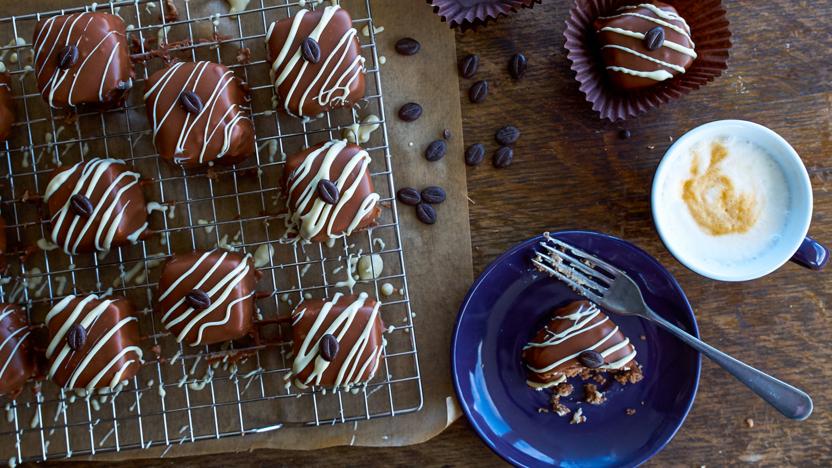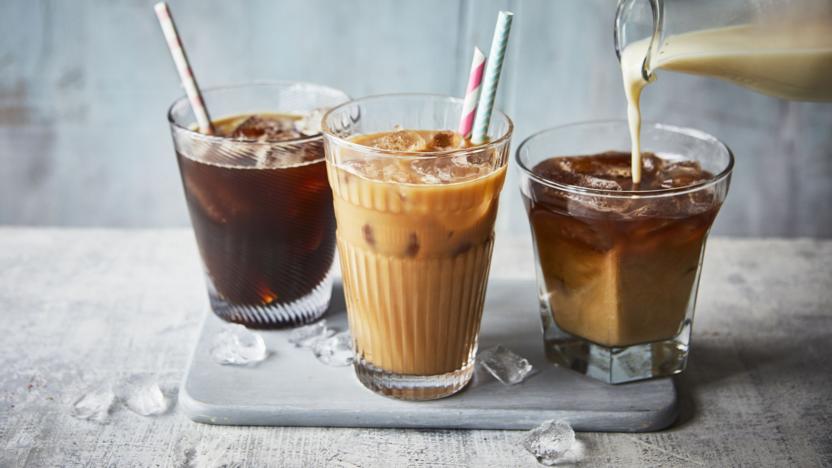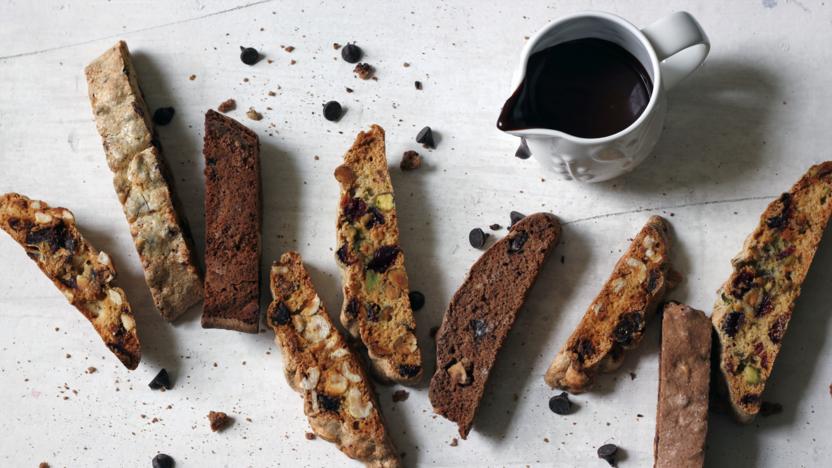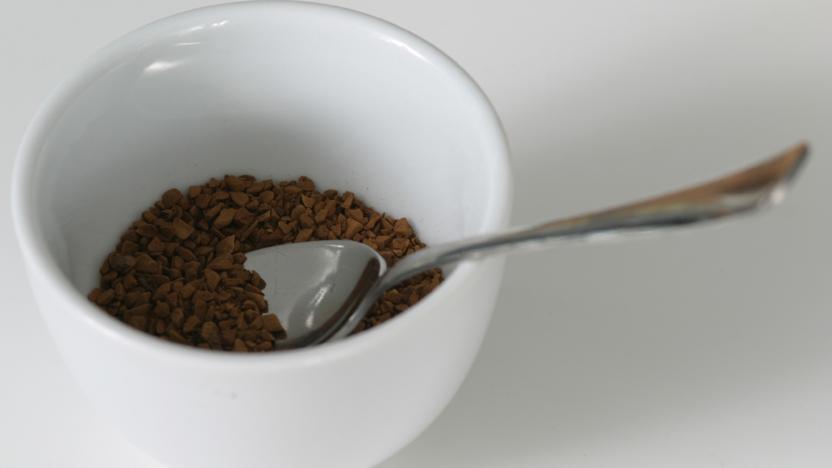Coffee beans recipes
Coffee beans grow on small evergreen tropical trees. The two main types of bean are Arabica and Robusta. Arabica grows at high altitudes and generally makes the best coffee; Robusta is much hardier, grows at lower altitudes and produces greater quantities of lower-grade coffee that are much used in coffee blends and instant coffee. Coffee beans have particular characteristics depending on their country of origin. Brazil is the world’s largest producer and exporter of coffee, but more than 40 countries export coffee beans. Broadly speaking, coffee production divides into three areas. The Caribbean, Central and South America produce coffees with good balance and a smooth, elegant taste. East Africa and Arabia produce coffees with a more pronounced acidity and fruitiness. Coffee from South-East Asia, India and the Pacific tends to be full-bodied and rich with a relatively low acidity.
Buyer's guide
The provenance of your coffee beans will determine the flavour of your coffee. Use the following information as a guide when buying coffee beans:
Santos - one of the best-known Brazilian coffees, these beans produce a smooth, sweet brew.
Arabica - the Andean foothills and Medellin plains of Colombia produce some of the best-quality, full-bodied and mellow Arabica beans in the world. Costa Rican Arabica beans, meanwhile, are fragrant and richly-flavoured.
Blue Mountain - all Jamaican coffee is good, but this bean, named after the area where it is grown, is the most renowned and expensive.
Chagga – a bean from Tanzania, the best of the country’s rich, delicate coffees.
Java – coffee beans from Indonesia and Java are full-flavoured and rich. Java coffee is matured before roasting to give it a unique flavour.
Mysore – an Indian coffee bean that’s soft and rich with low acidity.
Guantemalan coffee beans – light-roasted beans produce mild and full-flavoured coffee; dark-roasted beans yield coffee that’s powerful and smoky.
Kenyan coffee beans – beans from Kenya are of a consistently good standard and have a fine flavour and aroma. AA beans are the highest quality.
Before beans are roasted they are called ‘green’. Roasting brings out their flavour and aroma of the beans by reducing their moisture content and releasing their aromatic oils. The more coffee beans are roasted, the darker they will become.
Light roast coffee beans are suitable for breakfast coffees when a full but delicate flavour is needed. Medium roast coffee beans also makes a rich morning coffee brew. Coffee made with full or high roast beans will be strongly flavoured and more suitable for drinking after dinner. Continental roast beans produce coffee with a burnt, slightly bitter, caramelised flavour. These are used to make espresso.
Storage
Store ground coffee in a clean, dry, airtight container. Use this container only for coffee so that no other flavours taint the ground beans.
Freeze whole beans in an airtight bag for three to six months. Grind them frozen as needed.
Preparation
Always use the freshest beans possible. Ground beans lose their freshness more quickly than whole beans so, ideally, buy coffee beans regularly and in small quantities, and grind them just before use.
Make sure you grind whole beans correctly for the way you are going to brew the coffee. Burr mills give better results than blade mills, but are more expensive.
